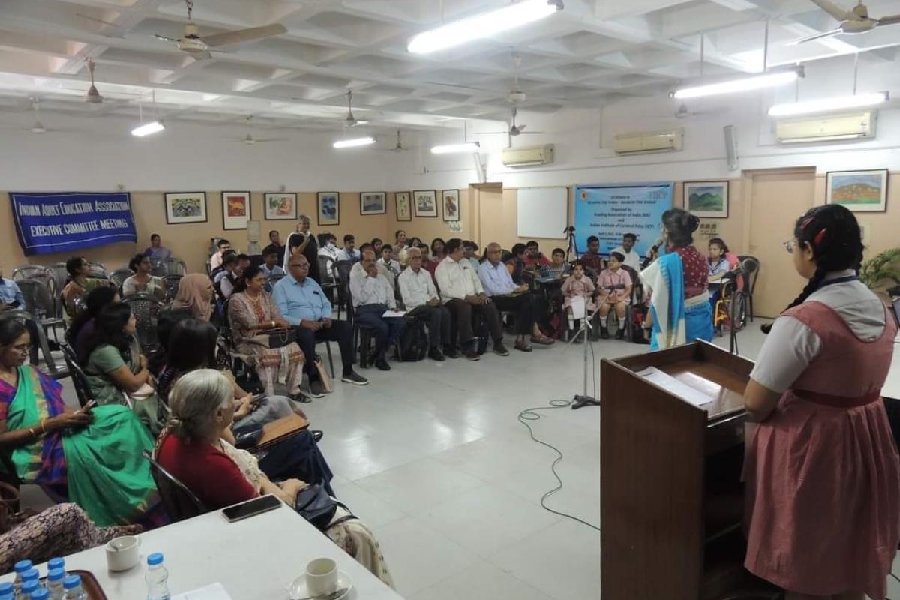Students from mainstream schools and those with special needs come together for daylong discussion on reading


Students from mainstream schools and those with special needs came together at a recent event for a daylong discussion on reading.
They shared formally and informally over lunch what they had read. Many shared what they had read and many said they had not seen people around them read.
“I do not see anyone in my family read. They watch television and the mobile phone, but do not read,” said a 14-year-old.
The students interacted at a symposium on “Reading the word — reading the world”, organised by the Reading Association of India and the Indian Institute of Cerebral Palsy (IICP) and held on the Taratala campus of the institute. The programme’s aim was to encourage reading habits among young people.
Many of the students who came from mainstream schools were from financially deprived homes who get little opportunities to read, said an organiser.
But reading habits have deteriorated irrespective of age and social standing.
“We wanted children to deliberate and discuss and our instruction to teachers was that they should not be spoon-fed. We wanted them to say what they feel like on the basis of what they have read because that will help develop the faculty of reasoning,” said Asoke Bhattacharya, president, Reading Association of India.
The association aims to promote literacy, among adults as well as children, and develop a “learning society” by encouraging young and adults to read and reflect.
“We gave an opportunity to some of the neighbouring grant-in-aid schools…. Our students, too, need to talk and express their opinions. There was scope for an informal interaction where students would interact with one another,” said Swati Chakraborty, deputy director of Indian Institute of Cerebral Palsy.
“Inclusion is not a one-day activity. It happens through regular interactions. There were students from IICP who spoke using assistive communication tools and the students from other schools heard and understood them,” said Chakraborty.
“It breaks the barrier between people and they start understanding each other by participating in a mainstream activity such as reading, which is for everybody,” said Madhumita Dasgupta of the IICP.
Dasgupta said awareness has gone up and there are schools that want to practise more inclusion but access still remains a problem. “Many of our students cannot go to mainstream schools because they cannot access the building. Something as simple as a portable ramp would make a building accessible to our students,” said Dasgupta.